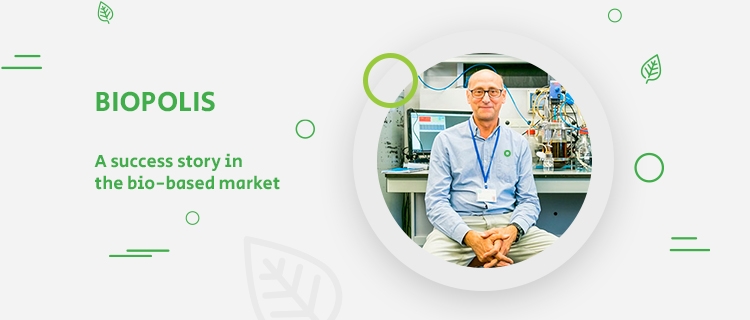Last September 2019, we interviewed Dr. Daniel Ramón, founder of Biopolis, a provider of microbial technologies for food companies, pharma, chemical manufacturers, cosmetic industry and energy & renewables.
During their business endeavor, they had to face challenges related with lack of an enabling context for innovation transfer, difficulties for finding suitable partnerships and legislative bottlenecks, among other.

Biopolis was founded in Valencia, Spain as a spin−off company of the Higher Council for Scientific Research (CSIC), together with three industrial partners: CAPSA, Talde Private Equity and Naturex España S.A.
The founder (Dr. Ramón) had worked at CSIC for 23 years. He was Professor at the Institute of Agrochemistry and Food Technology of CSIC and coordinator of the Food Science and Technology CSIC area. They were very good at publishing and participating in European projects, but they had a very low score of technology transfer to the sector. A new paradigm was needed, where scientists had contact with industry. With that purpose, CSIC boosted the foundation of Biopolis. Today, the company is 90% ADM and 10% CSIC.
The challenges detected for the company were:
In 2003, Biopolis board of directors conducted a study of the Spanish biotechnology industry, which concluded that many Biotech companies were sustained fundamentally by autonomic public funds. According to Daniel Ramón, the founders were forbidden to seek for public funds and received €56.000, with the condition that in 2 years they must earn profits.
The founders visited food, chemical and pharma companies, offering them their services. In 2 years, they made profit and in 5 years they had enough to create the “Lifesequencing” division.
According to Daniel Ramón “our philosophy is to always put the client first. This has not changed with ADM acquisition”. He also explained that it was not easy to find the first clients. They rented a car and visited several companies with the following offer: “Hello, we know how to do R&D, how can we help you?”. But most of the companies refused to give them a chance to prove themselves.
However, things changed when they arrived at Ordesa, an infant nutrition company of Barcelona, and met Montse Rivero (who was at that time, the scientific director).
“She trusted us. I have asked her many times why and she always says that she saw such curiosity and passion in us, that she was touched by us”, said Daniel. Since then, more clients arrived, and in 2 years Biopolis was achieving profits.
Author: Beatriz Palomo (ASEBIO)